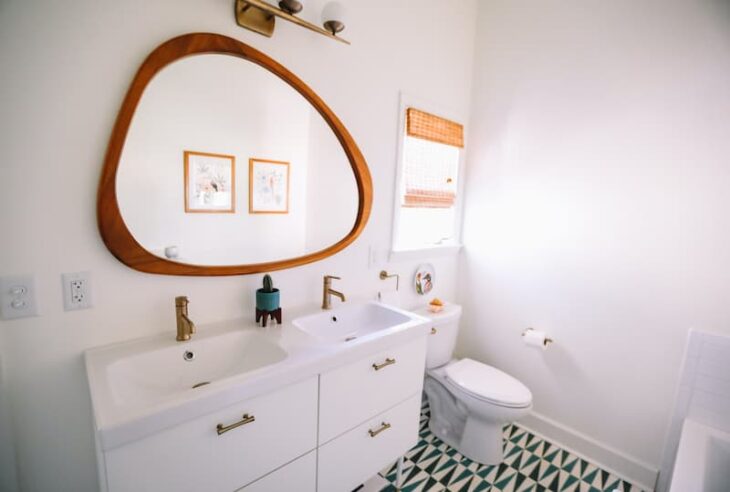Ways to Handle Your Bathroom Plumbing: Guidelines for New Homeowners
Ways to Handle Your Bathroom Plumbing: Guidelines for New Homeowners
Blog Article
What're your insights and beliefs on General Plumbing Tips for New Homeowners?

For new home owners, understanding and keeping restroom pipes can save both money and time by preventing expensive concerns down the line. Right here are some crucial restroom plumbing tips to aid you maintain every little thing running efficiently.
Familiarize Yourself with the Main Shut-Off Valve
Recognizing where the primary water shut-off valve is located in your house is vital. This allows you to rapidly shut off the water system in case of major leakages or throughout pipes emergencies, protecting against considerable water damages.
Frequently Inspect for Leakages
Tiny leaks can lead to big troubles. Frequently inspect under sinks, around commodes, and near pipes components for any type of signs of leaks. Seek dampness, little drips, or rust. Catching and repairing leaks early can prevent much more significant damages and save water.
Don't Disregard Slow Drains
If your sink or bath tub is draining pipes gradually, it's usually an indicator of a blockage forming. Addressing this early can avoid a full blockage. Utilize a bettor or a plumber's snake to remove debris. Avoid utilizing chemical drainpipe cleaners as they can damage your pipelines gradually.
Know What Not to Flush
Toilets are not waste disposal unit. Prevent flushing anything aside from toilet tissue and human waste. Items like wipes, womanly hygiene products, and cotton swabs need to be taken care of in the garbage to prevent obstructions and sewer back-ups.
Install Strainers in Drains
Area strainers in your sink and bath tub drains to capture hair and other particles before they enter your pipes system. Cleaning the strainers on a regular basis will help stop buildup and keep water streaming openly.
Keep Your Water Heater
Ensure your water heater is readied to an ideal temperature level (usually around 120 levels Fahrenheit) to avoid hot and lower power usage. Flush the container annually to get rid of sediment accumulation, which can lower the effectiveness and life expectancy of your heating unit.
Update Your Fixtures
If your home has older fixtures, think about updating to extra reliable designs. Modern bathrooms, showerheads, and faucets are made to use less water while offering excellent stress, which can substantially decrease your water bill and environmental impact.
Beware with DIY Pipes Services
While it's alluring to manage all home repairs by yourself, be cautious with plumbing. Some problems might need expert proficiency, especially if they include primary water lines or sewer repair services. Hiring a professional can occasionally be more economical than do it yourself, especially if it protects against further damages.
Get Ready For Winter
Protect your pipelines from cold throughout winter by protecting pipelines in unheated locations like basements, attic rooms, and garages. During extreme cool, allow cold water drip from faucets served by exposed pipes to aid prevent freezing.
Arrange Regular Maintenance
Consider scheduling annual inspections with a certified plumber. They can find concerns that you may miss out on, such as hidden leakages or deterioration on pipelines and components. Regular upkeep helps prolong the life of your plumbing system and can protect against emergencies.
Verdict
Comprehending and preserving your home's bathroom pipes can stop several usual problems. By complying with these essential ideas, you can guarantee your washroom continues to be practical and reliable, conserving you money and time in the future.
Essential Plumbing Tips for Homeowners: Keep Your Pipes Flowing Smoothly
As a homeowner, understanding the basics of your plumbing system can save you time, money, and a lot of headaches. Plumbing issues can range from minor annoyances like dripping faucets to major problems like burst pipes that cause significant damage. This guide provides essential tips to help you maintain your plumbing system and tackle common issues.
Understanding Your Plumbing System
Supply System: Brings fresh water into your home from a municipal source or a well. Drain-Waste-Vent System: Removes wastewater and vents sewer gases outside. Fixtures and Appliances: Includes sinks, toilets, showers, dishwashers, and washing machines. Basic Maintenance Tips
Regular Inspections: Periodically check for leaks, corrosion, and other signs of wear and tear. Look under sinks, around toilets, and near water heaters. Know Your Main Shut-Off Valve: In case of a major leak, you’ll need to shut off the water quickly. Ensure everyone in your household knows where the main shut-off valve is located. Prevent Frozen Pipes: In cold climates, insulate exposed pipes and let faucets drip during extreme cold to prevent freezing. Use Strainers: Install strainers in sinks and tubs to catch hair, food particles, and other debris that can cause clogs. Common Plumbing Issues and Solutions
Clogged Drains:
Prevention: Avoid pouring grease down the drain and use drain screens to catch debris. DIY Fix: Use a plunger or a plumbing snake to clear minor clogs. For stubborn clogs, a mixture of baking soda and vinegar can sometimes help. Leaky Faucets:
Prevention: Replace washers and seals regularly. DIY Fix: Turn off the water supply, disassemble the faucet, and replace worn parts.

Call Today Report this page